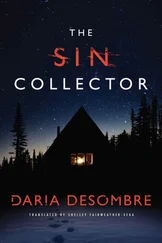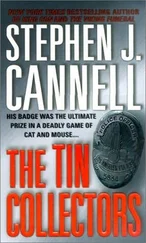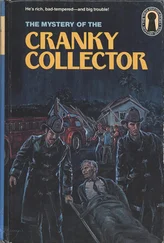Jess shook her head.
“Many, many people who come to see us enjoy a Hebrew name, which we can find for them. It’s a simple matter that for many people is profound.”
On the wall behind the rabbi, a bulletin board displayed snapshots of babies, boys and girls, children of all ages. Above the bulletin board hung a large portrait of a white-bearded man.
“The Bialystoker Rebbe,” said Rabbi Helfgott. “You know what a tsadek is? A tsadek is a saint. However, the Rebbe is not only a saint. He is also a genius. He has spirituality and intellect in equal measures. How many of us can say that? When he saw this thing, the Internet, did he say, ‘I am now eighty-six years old; I have no interest in computers’? No. He said, ‘With technology the whole wide world is now interconnected. Baruch Hashem, this is a miracle. A network of computers makes it possible for souls to transmit Torah everywhere.’ He also said: ‘There are no coincidences.’ It is not by chance that you and I live in such a time as this. People ask every day, ‘Why was I put on earth?’ As if there is perhaps one reason. The truth is there are too many reasons to count, and each reason and each soul connects to every other. I see in my own life that this is true. Is it an accident that Mrs. Gibbs came here to us, even though she was not a Jew? Is it by chance that she lives in the same building as you? And that you yourself are involved in the Internet?”
“I’m not involved at all,” Jess corrected him. “My sister is the one who—”
Rabbi Helfgott was unconcerned. “Everybody is a link. Do you understand?”
Jess nodded, suppressing laughter. There were many evangelicals in Berkeley. Moonies and druggies, hairless Hare Krishnas chanting in their flowing robes. Men in suits distributing little green Gospels. Prophets in sandwich boards preaching the end of days. Jess had seen all these, but she had never spoken at length to a religious guru, and despite Theresa’s warnings, she enjoyed it.
“Let me explain,” said Rabbi Helfgott. “After Torah, computers are my first love. Even in yeshiva as a boy, I wanted only to learn about these machines. Why? Because I loved the thought of them. Because of their power to change the world. Because of their memory. They take drudgery and make mincemeat of the most tiresome tasks. Some young boys in Brooklyn love baseball and some love candy. I personally loved to learn computer manuals and programming languages. Naturally this was only my hobby. When I grew older, I created the first Bialystok Web page, and I have continued as the webmaster ever since. When it was time for me to become an emissary, I asked the Rebbe, ‘Please, send me to San Jose to be the shaliach there. This is the center for computers. This is where the lights of truth and learning will transmit instantly to all the nations.’
“The Rebbe said, ‘Nachum, I am not sending you to San Jose. I am sending Mindel there instead.’”
Mindel? I thought. He knows nothing about computers. He does not care at all about technology. But I did not argue with my Rebbe. He knew more than I did.
“‘For you,’ said the Rebbe, ‘I am sending you to Berkeley.’ The Rebbe knew me better than I knew myself. When Mrs. Gibbs came to tell me about you and your investment, I understood.” Rabbi Helfgott opened his desk drawer and took out a long checkbook.
Was this a mistake? Jess thought. Probably. The office door was open. She could walk away, but she did not.
“Eighteen hundred dollars,” said Rabbi Helfgott, writing carefully. “This is a very special number. Each Hebrew letter corresponds to a number. Ten is yud , eight is chet . Together those letters make the word chai: life. Eighteen hundred is one hundred times chai . A very nice number which is also a round number.”
Jess watched, fascinated, as Helfgott ripped the check out of his checkbook.
“I follow the market each day,” the rabbi said. “I myself even trade a little in shares. I have some Apple. I have some Cisco. I bought Crossroads Systems at nineteen. I know from technology stocks. Veritech is the one that everybody wants.”
Jess started back, surprised. “You want me to give you some of my shares?”
“No, no, no.” The Rabbi raised his hands. “The loan is free. Just return the eighteen hundred after the IPO. If you want to give me anything more, then you decide however to repay me. Give to tzedakah —a gift to charity. Give to the Bialystok Center. Or give nothing. This is an investment. You are investing in Veritech. And I am investing in you.”
Everyone expected Emily to take care and take charge. It had always been this way. When her mother was sick, she’d filled out her own permission slips for school. When Jess signed up to bring home the kindergarten rabbit for the weekend, Emily took care of it. Look at Emily taking care of her sister , her New Jersey aunts said to one another after the memorial service. There were no relatives from England. Her English grandparents had died before Emily was born, but the New Jersey aunts were full of admiration. What an angel. Look how good she is , her father’s sisters said. Emily knew she was not an angel, but the more she doubted, the better she behaved.
At work she was the peacemaker. She wasn’t just the chief executive officer of the company; she was the adult when her partners behaved like children. Admittedly her colleagues were young. Alex Zaslovsky, Veritech’s chief technology officer, was just twenty-two. He had come to America at fifteen, and still spoke with a slight Russian accent. He’d been a math prodigy and skipped several years of school. He’d also been late to grow, so that even now he had a slight frame. He had black eyes, long lashes, a thatch of thick brown hair. He’d heard a secretary whispering about him at Kleiner Perkins Caufield & Byers. “How old is that one? Twelve?” He turned on her and gave her the finger right before his presentation to the board.
“Alex!” Emily whispered, and Milton Leong, the company’s twenty-five-year-old CFO, turned red with suppressed laughter. She appreciated Alex’s mind, and Milton’s sense of humor—his jovial personality set the tone for a company profiled in the San Jose Mercury News as “the most happy start-up.” But there were times when the two of them tried her patience. In a young industry, Alex and Milton acted their age.
This was the story they told about Veritech’s beginnings: Once upon a time, back in ’96 when Alex and Milton were grad students, they stayed up late finishing a paper, and they decided to order takeout. They started shuffling menus, and just as they settled on Thai food and began debating between Shrimp Delight and Shrimp in Love, a new paradigm for large-scale data storage and retrieval came to them. Each cache of data should have a take-out menu.
“Very funny,” Milton said, but Alex wasn’t joking. They met Emily, who saw the potential of a new data-storage paradigm, which was ingenious and elegant, and she drafted a business plan. Within months, Alex developed V.0, Milton found the first clients, and Emily organized the company.
The true story of Veritech’s beginnings was complex and technical, and had more to do with the paper Alex and Milton had been writing than the collection of take-out menus. They had not debated which sort of shrimp to order, because Alex was allergic to shellfish. Nor had they simply met up with Emily. She had come to them looking for an infrastructure project. But it was the business with the take-out menus that reporters fixed on. A take-out menu with numbered specials was something every interviewer could visualize, an endearing symbol for a couple of brilliant students brainstorming late at night. Veritech’s goal was to become the biggest Web-based data-storage company in the world, but its origin myth was all fun and games, as if once upon a time some guys got together and said, “We’ve got enough talent here. Let’s put on a show!”
Читать дальше












